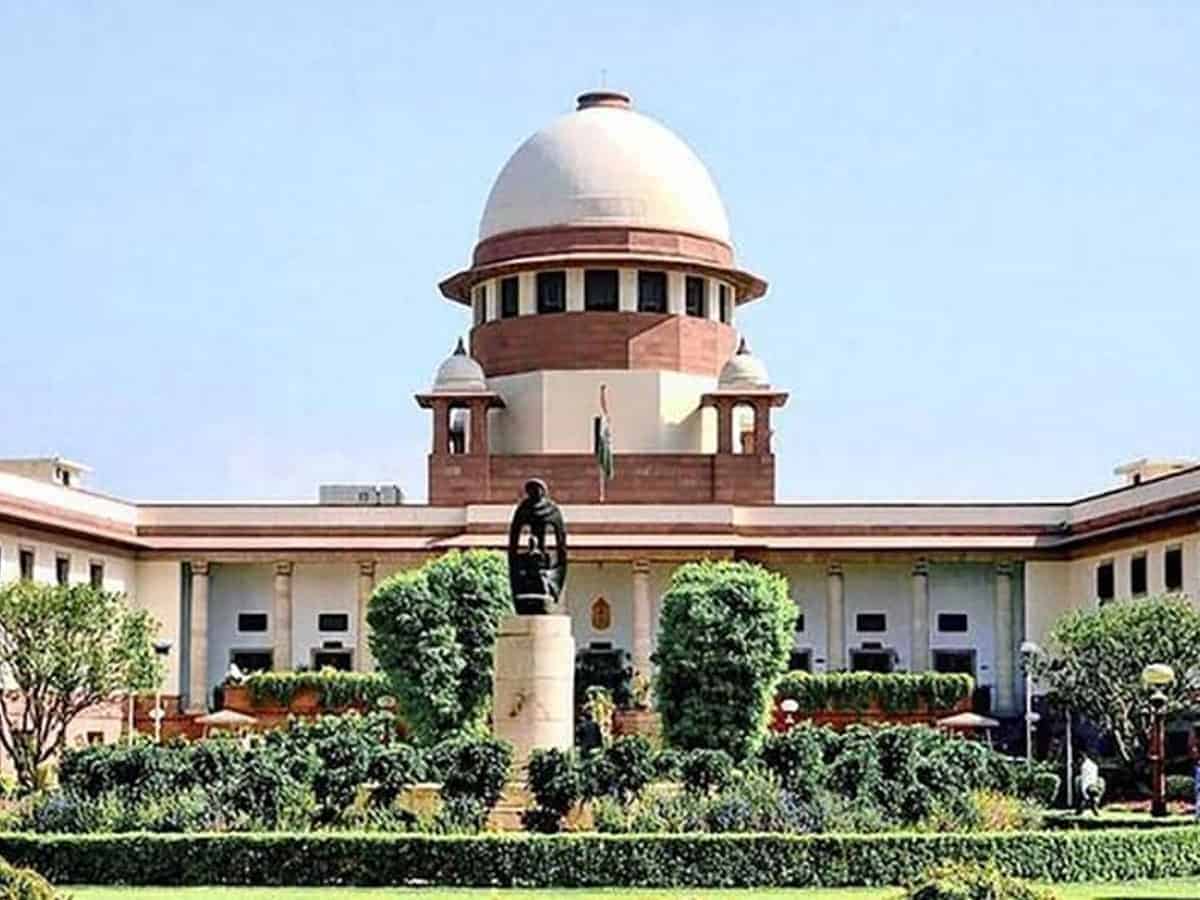New Delhi: The Supreme Court on Wednesday asked the Central government to look into the potential misuse of funds received through the electoral bonds scheme, while reserving its order on a plea seeking a stay on sale of fresh electoral bonds ahead of state assembly elections in West Bengal, Tamil Nadu, Kerala, Assam, and Union Territory Puducherry.
A Bench headed by Chief Justice of India SA Bobde after hearing the arguments from the counsels appearing for Association for Democratic Reforms (ADR) (petitioner), Centre, and Election Commission of India reserved the order on the plea.
The Bench, during the hearing, told Attorney General of India KK Venugopal appearing for Centre, “We are sure there are political parties who have violence on their agenda. Can not political party fund terrorist operations? Can’t a party receive bonds and then fund a protest which turns violent?”
“If a party buys electoral bonds worth Rs 100 crore, what is the assurance that it won’t be used for illegal purposes or fund violence?” asked the Bench from Attorney General.
“Suppose a businessman or anybody goes to buy electoral bonds does he have to disclose it’s black money or white money? Are these amounts to tax somewhere or this is undisclosed money?” the Bench further asked.
The Attorney General replied that every party has to file their income tax returns. “Apart from Communist party and one national party, no one had declared this. Even Congress did not file. It was after your judgment that all started filing. So now a question of such misuse cannot arise,” he added.
Venugopal also assured the Court that funds received through electoral bonds were white money that could only be issued through a cheque and demand-draft, and for which Know Your Customer (KYC) norms had to be followed.
During the hearing, advocate Prashant Bhushan appearing for ADR, argued that the Governor of the Reserve Bank of India (RBI) has written a letter in which it was stated that the electoral bond scheme was fraught with risk and would impact India’s financial system.
Bhushan added that the RBI raised serious objections and said this will facilitate money laundering through shell companies.
Bhushan further pointed out that the Finance Bill, 2017, which paved the way for the introduction of the electoral bond scheme, was passed as a money bill even though it wasn’t.
To this, the CJI replied, “If your argument is correct, we have to strike down the law in full. How do we decide this in an interim application?”
The top court asked Attorney General if the government was going to issue electoral bonds, Venugopal replied that the scheme will be open from April 1 to 10 after permission was granted by the Election Commission of India.
After hearing arguments in the case, the Bench said it will pass the order later.
The plea of NGO has said the sale of fresh electoral bonds should be stopped till the top court decided the three pending petitions challenging electoral bond scheme 2018 which granted anonymity to donors to political parties.
“There is a serious apprehension that any further sale of Electoral Bonds before the upcoming state elections in West Bengal, Tamil Nadu, Kerala, and Assam, would further increase illegal and illicit funding of political parties through shell companies. Thus, the petitioner seeks a direction that no further opening of window for the sale of Electoral Bonds be allowed during the pendency of the instant writ petition,” the petition stated.
The fresh application is filed in an already pending petition filed by the NGO in 2017, challenging the provisions of Finance Act 2017 which paved the way for anonymous electoral bonds.
The Petitioner-NGO in its application stated that previously, on two occasions, the government opened a special sale window of electoral bonds right before the state assembly elections, and so far more than Rs 6500 crores worth of Electoral Bonds have been sold with the majority of donations going to the ruling party.
An electoral bond is an instrument in the nature of a promissory note or bearer bond which can be purchased by any individual, company, firm or association of persons provided the person or body is a citizen of India or incorporated or established in India. The bonds are issued specifically for the purpose of contributing of funds to political parties.
The electoral bond scheme was notified by the central government on January 2, 2018.

